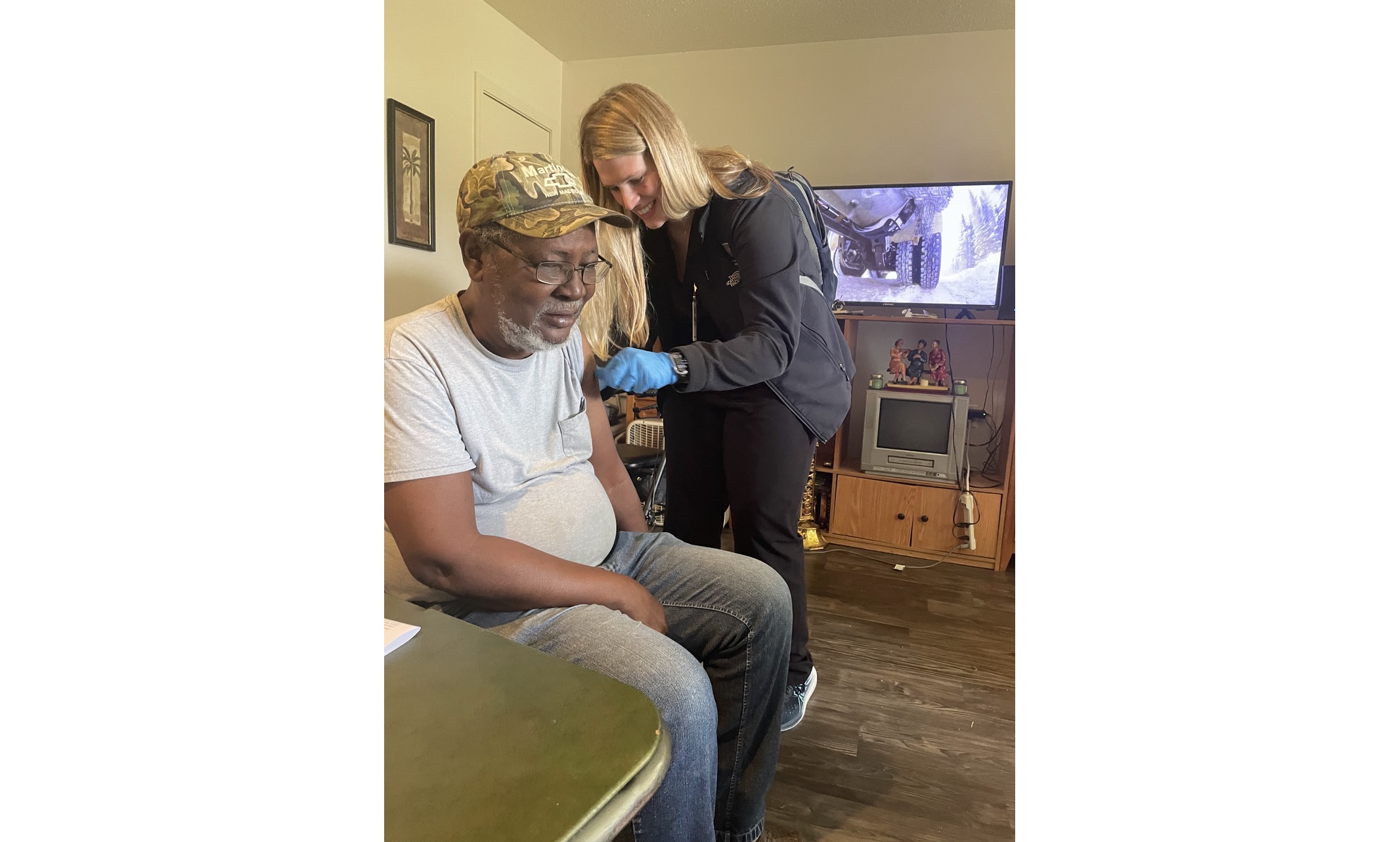Nicole Gorsuch recently received a grant that funds in-home immunizations for low-income, elderly and immobile patients, working to fill a health-care gap that exists in parts of rural Missouri.
For Nicole (Nickie) Gorsuch, the final step after pharmacy school at the University of Tennessee toward being a full-fledged pharmacist was a one-year community residency. Gorsuch was matched in Charleston, Missouri, through a partnership between UMKC and L & S Pharmacy in the town. Charleston is an underserved town in rural southeast Missouri, and Gorsuch is exactly the kind of candidate UMKC hopes to send into these areas.
“Nickie came to our program ready to be molded, excited to learn and ready to practice her skills,” said Sara Opronovich, Pharm.D., the school’s residency program director and Gorsuch’s supervisor.
Gorsuch arrived in Charleston last summer and quickly witnessed the lack of accessible and robust health care.
“We have, like, one doctor that comes to town once a week,” she said.
The lack of health-care facilities, combined with limited transportation and insecure housing, means that residents are often at higher risk of developing a condition that goes untreated, potentially turning serious without intervention. Gorsuch had her work cut out for her.
Along with being the only pharmacy in Charleston, L & S Pharmacy is a community pharmacy that has clinic days to vaccinate residents. During these days, Gorsuch noticed several patients weren’t able to come into the pharmacy to receive their vaccines.
“I was like, ‘well, why don’t we just go to them?’” Gorsuch said.
The program started small.
“One day, we had a few patients, so we just lined them up on our calendar to just go to them to give them their vaccines because, again, they don’t have a car,” she said. “We don’t have Ubers or taxis or anything. They have to walk, and a lot of our elderly population just don’t have the resources to get the things they need.”
As the demand for in-home vaccinations grew, Gorsuch began to think bigger about what more this program could do for residents.
“That’s why we applied for this grant through Missouri Pharmacy Association,” Gorsuch said.
“In rural and underserved locations like southeast Missouri, these problems are amplified,” Opronovich said. “The seemingly simple intervention of giving a shot is also more difficult with fewer providers and more challenges with social determinants of health. Nickie’s work points out the added challenge of providing this health resource and shines a light on the need to provide funding for such interventions.”
The funding from the $60,000 grant was received in late 2023 and has enabled L & S Pharmacy to conduct transportation screenings to assess which patients can travel to the pharmacy and which patients need in-home or delivery care. This gives Gorsuch and the team a more complete picture of their patients’ challenges. The funding also covers transportation fees for the pharmacy team as well as vaccines for some uninsured patients.
Gorsuch’s in-home immunization program has shed even more light on the existing health-care challenges that rural communities face.
“We had a patient who has been to the pharmacy a lot, and I never knew that he didn’t have transportation (until screening), but he walked to the pharmacy,” Gorsuch said. “I never knew because I never asked. The more that we ask, the more we know.
“It’s not a really walkable area, but for some patients it has to be because they don’t have any other way.”
Gorsuch’s work at L & S Pharmacy will continue through the end of her residency in summer 2024. The program has enough funding for at least the next five months. With the help of community partners like grocery stores in Charleston, Gorsuch hopes to reach more potential patients who are not already in the health-care system in places they already. Community partners like grocery stores and food pantries open up conversations about the benefits of vaccines and how their local pharmacy is there to help.
“The more we can get out to the people, the better we are able to capture everyone,” Gorsuch said.

